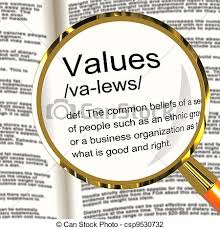Widgetized Section
Go to Admin » Appearance » Widgets » and move Gabfire Widget: Social into that MastheadOverlay zone
The Case for Value Neutrality in Public Administration
The views expressed are those of the author and do not necessarily reflect the views of ASPA as an organization.
By John Pearson
September 9, 2016

I would argue that public administration (PA) as an academic field should stay as value neutral as possible – like chemistry or other sciences. PA writers have apparently struggled a lot with this issue. See Dahl’s paper from the late 1940s.
In my recent column, I argued for a very strict fact/value dichotomy.
Public employees at all levels desperately need all the help they can get from academia to raise their productivity and meet the ever increasing demands from legislatures and the public. Let the legislatures and courts deal with the value issues. Current laws and court decisions in the U.S. already reflect public policy regarding value issues. Public administrators have a difficult time just understanding the myriad rules that reflect value requirements: nondiscrimination rules, rules affecting the disabled, fair wage and hour rules, workplace safety rules, environmental rules, citizen participation rules, freedom of information rules, etc. Administrators are expected to produce services as efficiently as possible while still complying with all of the rules.
There is no shortage of opinion in the U.S. regarding advocacy for particular values. We have think tanks, lobbyists, newspapers, cable TV, magazines, websites, etc., literally pouring out opinions. They all make assumptions about values. We don’t need an academic field to adopt a “normative” position beyond rule of law and efficiency.
We can study whether less contracting out would save the government money; how procurement rules might be simplified; and how government personnel systems might be improved. It’s OK to study the pros and cons of different health insurance systems around the world. It’s not OK (as part of administrative science) to argue that the U.S. or any other country should have a universal health insurance system. Should statements reflect value judgments and are outside the bounds of science.
We can easily observe the wide range of values that people exhibit worldwide. Think about issues recently in the press: police misconduct, sexual slavery, corruption, gay and transgender rights, child pornography, imprisonment without fair trials, separation of church and state, discrimination based on race, ethnicity, or sexual orientation, abortion, mistreatment of immigrants and denial of religious freedom. Each of us has opinions on these issues in accord with our understanding of the facts but mostly in accord with our internal moral compass. Scholars can study the facts about these issues. Our feelings about these highly charged issues can and should be separated from the factual issues. Science cannot tell us what we should value.
One of the presidential candidates recently said, “To the victor goes the spoils.” That statement probably doesn’t reflect the values typical in the PA community. But it no doubt reflects the values of many people. Scholars can put values under the microscope and measure how prevalent they are without advocating pro or con.
I don’t believe ASPA should have a “social equity” value. As an organization, ASPA should be neutral regarding increasing or decreasing social equity in any country. Social equity issues are appropriate for the political process and the courts in each country– not individual administrators. Administrators have the duty to follow the laws in their country. (An exception might be if a country’s laws are inconsistent with international norms.) If ASPA is going to adopt a values position, why not adopt something a little broader like “human rights” or democratic values?
Fred Hiatt of The Washington Post has reported that according to Freedom House, freedom has declined recently in 105 countries and advanced in 61 countries. Many would agree with Hiatt that this anti-democratic shift is a bad sign for the world. Others would disagree. There is no universal agreement on democratic values, Western values, social equity or any other values because value positions cannot be proved by the standards of science or the courtroom. By contrast, no one can dispute factual advances in science such as the periodic table in chemistry, the distance to the moon, or the germ theory of disease.
Of course, practitioners in public administration must make value judgments all the time. If an administrator has discretion in a decision situation, he or she considers the facts (as best can be determined) and weighs the relevant values inherit in the situation. It doesn’t mean just weighing his or her personal values. He may be pushed by superiors to emphasize one administrative value over another – for example program quality over customer service or visa versa. Some may disagree with the administrator’s decision because they have different value preferences.
Maybe we should think of three possible hats we might have on at different times – the practitioner hat, the science hat and the citizen hat. Practitioners must make value judgments and try to maximize utility (as best they understand it) for their organization. When we have the science hat on, value judgments are precluded because value judgments cannot be addressed by science. When we have the citizen hat on, we can, of course, make value judgments such as arguing for universal health insurance or democracy or any other value.
Author: John Pearson recently retired from a lengthy career in the federal government where he was a program analyst. He has an MPA and a bachelor’s degree in economics. He now writes columns reflecting on his experience in government. His email is [email protected].



Follow Us!